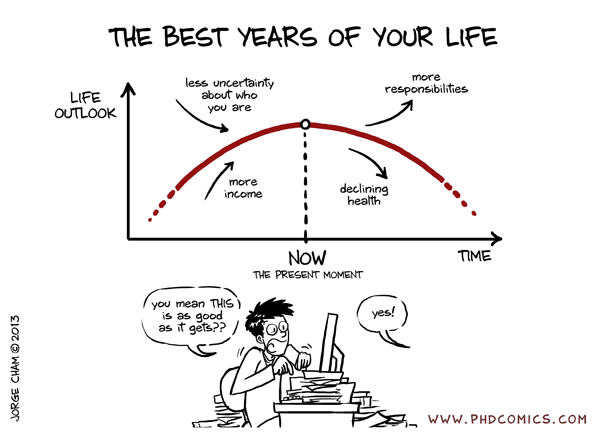There are two tragedies of the well-documented surplus of Ph.D. graduates in the STEM fields. They are almost two sides of the same coin. One, there are not enough STEM jobs available for Ph.D. graduates. Many who have earned their Ph.D.s leave their respective fields because they cannot find suitable jobs. Two, we are potentially missing out on solving problems or learning new information because these trained professionals cannot find jobs in their fields. With so many currently incurable diseases, technological limitations, space exploration, physics questions and socioeconomic problems worldwide, we should maximize our human capital.
Lack of Jobs
Right now universities are producing more Ph.D. graduates than there are jobs in their related fields. A certain percentage finds jobs in academia, another percentage finds industry jobs, another percentage finds other related jobs, and another percentage finds jobs completely unrelated to what they have been trained for. While going through a Ph.D. program, students are often required to work late nights, early mornings, weekends, battle with bouts of depression, anxiety attacks, delay starting a family, and delay earnings. Some incur debt pursuing their degree while many of the lucky ones that are fortunate enough to earn a stipend do so earn enough to put them just above the poverty line. The problem is many dedicate years and expend a lot of effort to be trained for jobs that will not exist when they graduate.

To be fair, there are opportunities to develop transferable skills such as effective communication, giving presentations, collaborating with others, writing, organization, planning, teaching, research, developing a persuasive argument, networking, stress management, time management, etc. It is not clear though, if those who end up in jobs unrelated to their fields of study could have developed those same skills in a more tailored process without going through the same frustrations. In addition, how those skills can be used for jobs outside of academia are not necessarily emphasized during one’s tenure as a Ph.D. student.
It would be interesting to see how those who left their fields of study fare in the long term with respect to finances, social well-being, emotional stability, career trajectory, lifetime earnings, and family life compared to other groups such as Ph.D. students who stayed in their fields or others who began working after obtaining a Master’s degree, or Bachelor’s degree or even a high school diploma.
Abundance of Problems
Society has many problems and questions in areas such as health and medicine, astronomy, economics, technology, politics, agriculture, etc. What are the cures for human, animal, and plant diseases? Are there other habitable planets? Are there other intelligent beings on other planets? How do we solve world hunger? How do we solve homelessness? How do we improve upon technology? How do we prevent crimes? How do we prevent wars? What do we need to know that we don’t know? Currently, we have a production mill of people trained to address these problems, but, unfortunately, many do not have the means to do so. What a loss.
What now?
Ph.D. programs should probably vary their training programs. Universities could possibly offer courses or maybe seminar series on working in industry, working at research institutes, starting your own business, or how to market and use your skills in jobs unrelated to your field of study.
It would be interesting to see how many people who no longer work in their fields become armchair scientists or even better, citizen scientists. Citizen scientists are nonprofessional scientists that contribute to scientific research through various citizen science (crowd-sourced) projects. I wonder how many formerly trained scientists contribute to citizen science research or even how many would be interested in doing so. This may be one way to capture the expertise and enthusiasm (if it isn’t completely lost) of Ph.D. graduates for the different fields.


I think citizen scientists are the wave of the future. Putting many great minds together can only bring great things. No longer being inhibited by specific interests of a company/employer, citizen scientists are free to put science first. Because of this and the possibilities of free collaboration with various people that they might not otherwise have known, citizen scientists may well overtake professional scientists in advancement.
LikeLike
I definitely think citizen science is a great opportunity to make significant advances. Whenever the input of the masses is effectively used we see encouraging results.
LikeLiked by 1 person